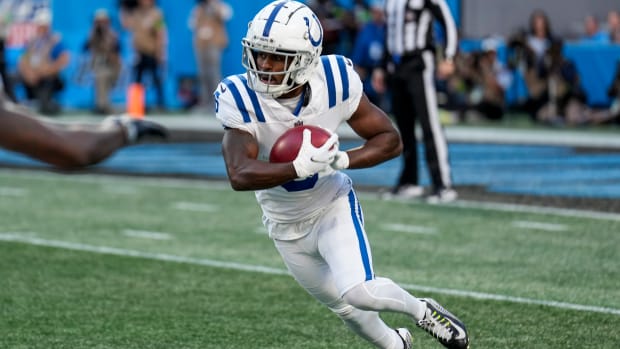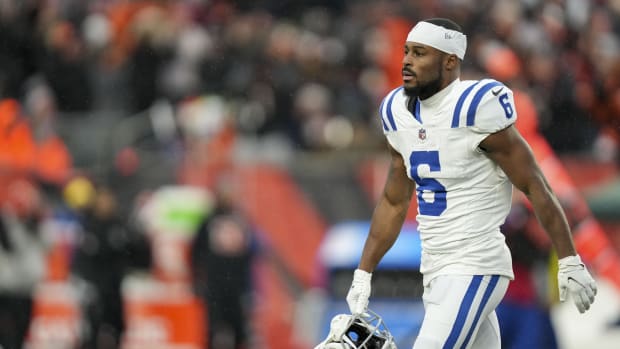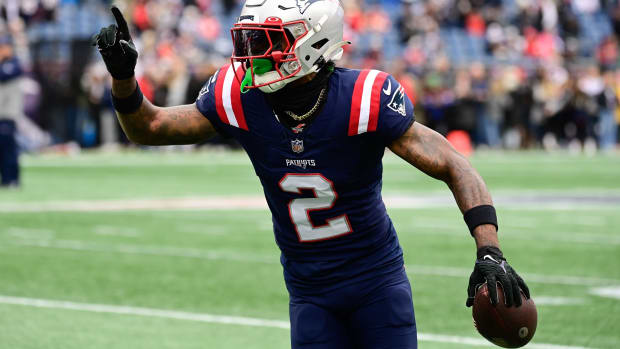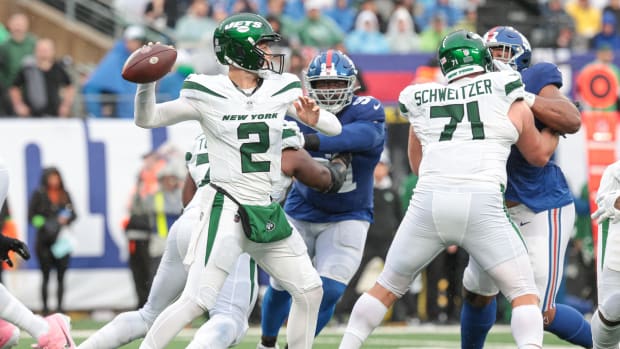Five Things to Know About the Miami Dolphins
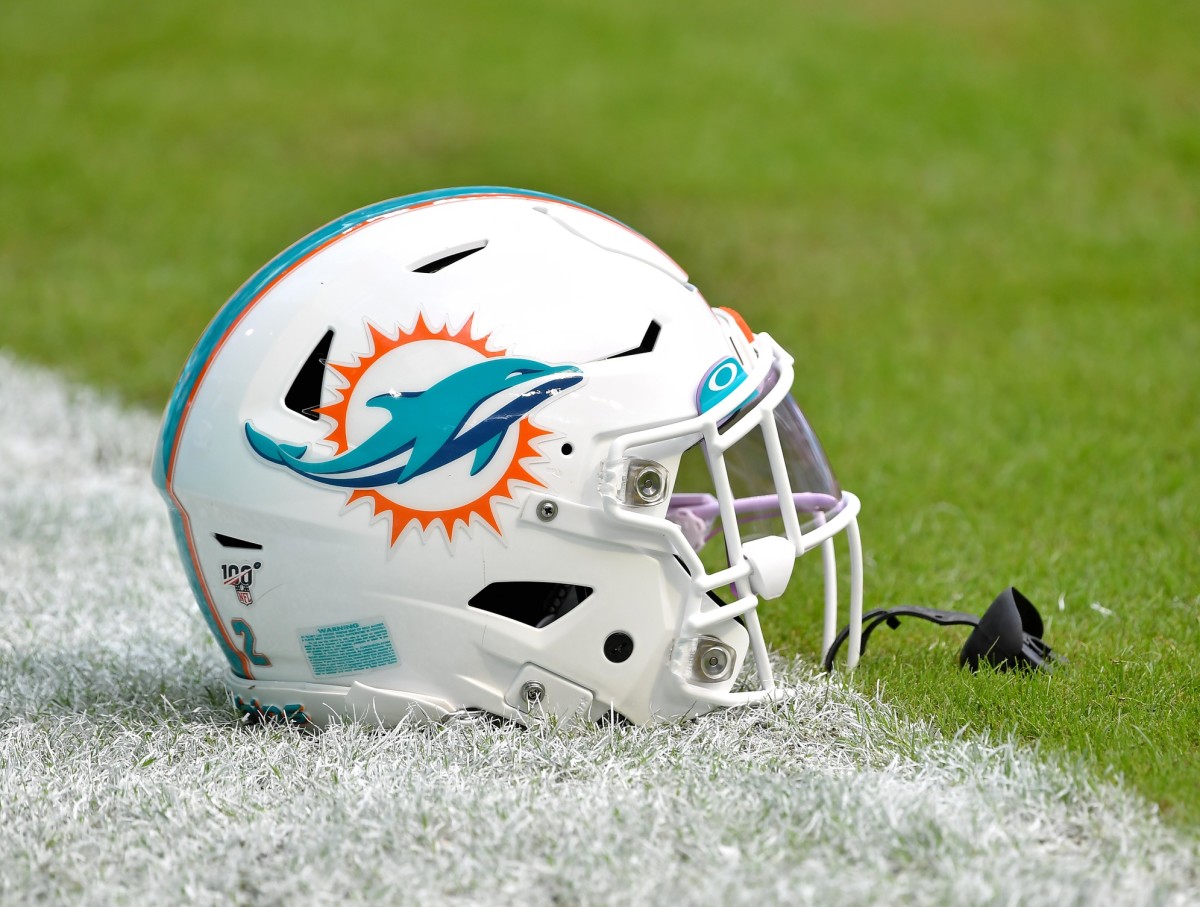
The New York Giants (2-10) will return home and attempt to end their nine-game losing streak at the expense of the Miami Dolphins (3-10) in Week 15. The Dolphins have been one of the worst teams in the NFL this season, but even though they’ll come into this game as underdogs, New York shouldn’t underestimate its opponent.
After starting the year with seven-straight losses, the Dolphins have been competitive over their last six contests, sporting a 3-3 record with wins over the New York Jets (5-8), Indianapolis Colts (6-7), and the Philadelphia Eagles (6-7).
With wins over two teams that the Giants have already lost to this year, it’s clear that Miami will pose a much bigger challenge than previously anticipated. However, no team is without its weaknesses and if Big Blue wants to come out on top Sunday afternoon, they’ll need to put together a game-plan that perfectly exploits Miami’s flaws.
With that in mind, here are a few things that Giants fans should keep in mind for this weekend’s matchup with Dolphins.
1. Miami’s defense can barely stop anyone.
The Dolphins have been historically bad in all three phases of the game this year, but their biggest area of weakness is easily their stop unit.
Miami has been the worst team in the league defensively this season and it’s not even close. Through 13 games, the Phins have allowed a league-worst 30.7 points per game (PPG), a little over a point more than the 31st ranked Tampa Bay Buccaneers.
It doesn’t get much better for Miami in other defensive statistical categories either, which is exactly what the Giants want to hear.
The Phins are allowing a whopping 397.7 total yards (No. 30 in the NFL) and 141.1 yards rushing (T-No. 30 in the NFL) per game this year. Miami’s pass defense (256.6 yards allowed per game, No. 23 in the NFL) is much better than their rushing defense, statistically speaking.
However, that can easily be attributed to the fact that, more often than not, its opponents have leaned on the run after building large leads.
The one “strength” of Miami’s stop unit, to put it generously, is that it's been much better at keeping opponents off the scoreboard away from home, allowing 27.3 PPG on the road (T-No 26 in the NFL).
2. The Dolphins’ offense is, well, downright offensive.
The Dolphins’ defense has been a major reason why they’re in contention for the first overall pick in this upcoming spring’s NFL Draft, but it’s not like their it offense has done them any favors either.
Despite their recent run of form, Miami has been downright anemic on offense, struggling to score against some of the league’s most vulnerable defenses. Through 13 games, the Phins are averaging just 17.0 PPG (No. 30 in the NFL) and 283.5 total yards per contest (No. 30 in the NFL).
Miami’s passing game hasn’t been too great this year (212.6 yards passing per game, No. 23 in the NFL), but it’s done just enough to keep the team relatively competitive. The Phins’ anemic running game, on the other hand, has been most detrimental to their success this year.
The Dolphins have been unable to get anything going on the ground this season, averaging a league-worst 67.3 yards rushing per game and just 3.3 yards per attempt (No. 32 in the NFL).
Miami’s inability to get anything going on the ground has forced it--more often than not-- to rely on the passing game (33.63 rushing play percentage, No. 31 in the NFL).
If the Giants can force the Phins to air it out, they should be in good shape on Sunday - especially due to Miami’s struggles up front.
3. Defenses have been living in Miami’s backfield.
Miami’s offensive line has been one of the league’s worst pass-blocking units in 2019 and barring a miraculous turn around before this weekend, it could easily be their undoing against the Giants in Week 15.
Dolphins quarterbacks have been absolutely abused this season thanks to their o-line’s inability to contain the pass rush, allowing a league-worst 51 sacks, 59 quarterback hurries (T-No. 29 in the NFL) and 62 quarterback hits (No. 31 in the NFL).
Being under pressure and dealing with a constantly collapsing pocket hasn’t helped Miami’s signal-callers on the stats sheet either, as the team’s blockers have allowed a league-worst 18 passes batted at the line.
The Giants’ defense ranks smack-dab in the middle of the pack when it comes to blitzing (28.7 blitz percentage, No. 16 in the NFL) this year, but dialing up the pressure against the Dolphins would clearly go a long way in keeping Miami’s offense in check.
If defensive coordinator James Bettcher can stay aggressive on Sunday, New York’s beleaguered stop unit should be in for a strong performance.
4. From Fitzmagic to Fitztragic.
Quarterback Ryan Fitzpatrick is the main offensive catalyst for the Dolphins and is a huge reason why they’ve actually found themselves in the win column this year.
However, he’s also been a big reason why they’ve found themselves in the loss column as often as they have this year.
While it’s not his most egregious flaw, the 37-year-old signal-caller has been an erratic passer at times despite his moments of brilliance, as 72.4 percent of his passes have been on target (T-No. 23 in the NFL). Yet, his biggest issue this year has been his inability to take care of the ball.
Fitzpatrick’s been a quintessential gunslinger this season, throwing the ball with reckless abandon.
And while it’s worked often enough for the Dolphins to succeed, it’s also backfired spectacularly at times.
In the 12 games he’s played this year, the 37-year-old owns a 4.5 percent interception rate (No. 29 in the NFL) and has tossed 12 interceptions (T-No. 25 in the NFL) to just 13 touchdowns (No. 28 in the NFL). Additionally, Fitzpatrick has fumbled seven times (one lost) this season.
5. Slow starts have been a consistent problem for Miami.
The Dolphins are a complete mess and when you take into account all of the above, it makes plenty of sense why they’ve been in catch-up mode right out of the gate in almost every game they’ve played this season.
Miami has been one of the worst first-quarter teams in the league, allowing 7.0 points per first-quarter (No. 31 in the NFL) across its 13 games this season.
And even once the first period of play has ended, they’ve struggled to properly adjust to what their opponent is giving them. Through Week 14, the Dolphins are allowing a league-worst 16.0 first-half PPG.
The defense clearly hasn’t helped the Dolphins’ cause in the early going, but it’s not like their offense has done much to bail them out either.
Miami sports one of the worst first-quarter offenses in the league, averaging just 2.8 points per game in the first frame of play (No. 28 in the NFL).
Additionally, the Phins have had a hard time finding their offensive rhythm early in road games, averaging just 9.3 first-half points away from home (No. 24 in the NFL).

